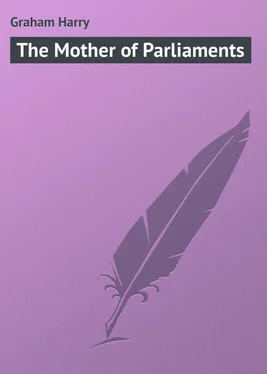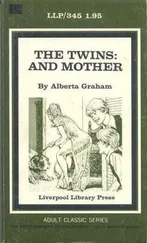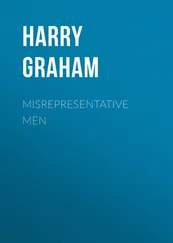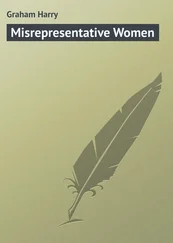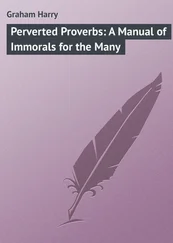Harry Graham - The Mother of Parliaments
Здесь есть возможность читать онлайн «Harry Graham - The Mother of Parliaments» — ознакомительный отрывок электронной книги совершенно бесплатно, а после прочтения отрывка купить полную версию. В некоторых случаях можно слушать аудио, скачать через торрент в формате fb2 и присутствует краткое содержание. Жанр: foreign_prose, на английском языке. Описание произведения, (предисловие) а так же отзывы посетителей доступны на портале библиотеки ЛибКат.
- Название:The Mother of Parliaments
- Автор:
- Жанр:
- Год:неизвестен
- ISBN:нет данных
- Рейтинг книги:5 / 5. Голосов: 1
-
Избранное:Добавить в избранное
- Отзывы:
-
Ваша оценка:
- 100
- 1
- 2
- 3
- 4
- 5
The Mother of Parliaments: краткое содержание, описание и аннотация
Предлагаем к чтению аннотацию, описание, краткое содержание или предисловие (зависит от того, что написал сам автор книги «The Mother of Parliaments»). Если вы не нашли необходимую информацию о книге — напишите в комментариях, мы постараемся отыскать её.
The Mother of Parliaments — читать онлайн ознакомительный отрывок
Ниже представлен текст книги, разбитый по страницам. Система сохранения места последней прочитанной страницы, позволяет с удобством читать онлайн бесплатно книгу «The Mother of Parliaments», без необходимости каждый раз заново искать на чём Вы остановились. Поставьте закладку, и сможете в любой момент перейти на страницу, на которой закончили чтение.
Интервал:
Закладка:
35
This was evidently a favourite simile of O'Connell's. He used it again with reference to Mr. Shaw, member for Dublin University, in the debate on the resolution for giving a grant to Maynooth College for the education of Roman Catholics.
36
"English Traits," p. 46.
37
In a speech delivered at a banquet in Glasgow on January 13, 1837.
38
In the sixteenth century the Prior of the Hospital of St. John of Jerusalem (near Clerkenwell), whom Selden calls "a kind of an otter, a knight half-spiritual and half-temporal," had precedence of all the lay barons in Parliament. His priory was suppressed in 1536, but his name continued to appear spasmodically in the Journals of the House of Lords until some time in Queen Elizabeth's reign.
39
Dr. King's "Anecdotes," p. 130. (It was a more modern politician who, on being reproved by an opponent, said, "Consider the case of Balaam's ass; before it spoke all men regarded it as quite an ordinary quadruped, but after it had spoken they discovered what an extraordinary ass it was!")
40
In November, 1908, the election of an Irish peer resulted in a tie between Lords Ashtown and Farnham. Such a thing had not happened since the Union. The difficulty was settled in a manner only perhaps possible in an institution as venerable as the House of Lords. In accordance with the provisions of the Act of Union, the Clerk of the Parliaments wrote the names of the candidates on two pieces of paper which he then put into a glass. One of these he drew out at random, and the peer whose name was inscribed thereon was declared to be duly elected.
41
Lord Curzon of Kedleston was so created in 1898.
42
When the last Liberal Government of Queen Victoria came into office the Court officials were discussing the new Administration one day at Windsor. "I wonder what peers they'll make," remarked one of the ladies-in-waiting. The Queen turned upon her with uplifted eyebrows. " They! " she exclaimed. An uncomfortable silence ensued. Again, in 1909, a Cabinet Minister's allusion in a speech to certain newspaper proprietors whom a Conservative Prime Minister had "taken the precaution to make into barons" inspired the King's private Secretary to write a letter to a correspondent in which he stated that, notwithstanding the Minister's statement, "the creation of Peers remains a Royal prerogative."
43
"Letters to Sir H. Mann," vol. i. p. 380.
44
On the Second Reading of the Corn Importation Bill, May 25, 1846.
45
"Works," p. 564.
46
The peer in question had not donned a false nose for the occasion, as might be imagined, but was merely wearing the ordinary working nose of aristocratic proportions with which Providence had supplied him.
47
Croker's "Letters," vol. i. p. 85.
48
One is reminded of the reply addressed by the Emperor Alexander to Madame de Stael who was complimenting Russia on possessing so able a ruler. "Alas, Madame," he said, "I am nothing but a happy accident!"
49
At the time of the French Revolution, the country supported the Government so strongly that the Opposition dwindled away to nothing. It was even jestingly asserted that the Whigs could all have been held in one hackney coach. "This is a calumny," said George Byng; "we should have filled two!" Campbell's "Lives of the Chancellors," vol. v. p. 614.
50
It is suggested that the balance of party could be adjusted by the Government persuading the Crown to create a number of peerages sufficient to flood the House with peers of their particular political persuasion. In 1712, Queen Anne was prevailed upon to create twelve peers in a single day, in order to pass a Government measure. "If these twelve had not been enough," said Bolingbroke, "we could have given them another dozen!" William IV. was prepared to create a hundred new peers to ensure the passing of the Reform Bill of 1832. It remains to be seen whether such an idea is nowadays practicable.
51
"1. That it is expedient that the House of Lords be disabled by Law from rejecting or amending a Money Bill, but that any such limitation by Law shall not be taken to diminish or qualify the existing rights and privileges of the House of Commons.
"For the purpose of this Resolution a Bill shall be considered a Money Bill if, in the opinion of the Speaker, it contains only provisions dealing with all or any of the following subjects, namely, the imposition, repeal, remission, alteration, or regulation of taxation; Charges on the Consolidated Funds or the provision of Money by Parliament; Supply; the appropriation, control, or regulation of public money; the raising or guarantee of any loan or the repayment thereof; or matters incidental to those subjects or any of them."
"2. That it is expedient that the powers of the House of Lords, as respects Bills other than Money Bills, be restricted by Law, so that any such Bill which has passed the House of Commons in three successive Sessions, and, having been sent up to the House of Lords at least one month before the end of the Session, has been rejected by that House in each of those sessions, shall become Law without the consent of the House of Lords on the Royal Assent being declared; Provided that at least two years shall have elapsed between the date of the first introduction of the Bill in the House of Commons and the date on which it passes the House of Commons for the third time.
"For the purposes of this Resolution a Bill shall be treated as rejected by the House of Lords if it has not been passed by the House of Lords either without Amendment or with such Amendments only as may be agreed upon by both Houses."
"3. That it is expedient to limit the duration of Parliament to five years."
52
The following further Resolutions stand upon the Notice Paper and still await consideration: —
"(1) That in future the House of Lords shall consist of Lords of Parliament: A. Chosen by the whole body of hereditary peers from among themselves and by nomination by the Crown. B. Sitting by virtue of offices and of qualifications held by them. C. Chosen from outside.
"(2) That the term of tenure for all Lords of Parliament shall be the same, except in the case of those who sit ex-officio, who would sit so long as they held the office for which they sit."
53
Hayward's "Essays," p. 305.
54
Hansard, vol. 289, p. 957 (1884).
55
Durham, both County and City, was not enfranchised until 1673, and Monmouth was regarded as a Welsh County.
56
"The House of Commons is called the Lower House in twenty Acts of Parliament," says Selden. "But what are twenty Acts of Parliament amongst friends?" – "Table Talk," p. 36.
57
"Quarterly Review," vol. xxix. p. 63.
58
Raikes's "Journal," vol. i. p. 157.
59
"Pall Mall Gazette," December 28, 1860.
60
The Irish members were increased to 105 in 1832, but subsequently reduced to 103, fifty years later.
61
Hansard, "Debates," 18 April, 1864.
62
The General Election of 1880 cost £1,700,000. This expenditure was reduced to about a million pounds after the passing of the Corrupt and Illegal Practices Prevention Act and the Redistribution Bill of 1883 and 1885. By the former the expenses in boroughs are limited to £350, if the number of electors does not exceed 2000; and to £380 if it does exceed 2000, with an extra £30 for every further 1000 electors. In counties, where the electors do not exceed 2000, the expenses are limited to £650, and to £710 if they exceed 2000, with an extra £60 for every further 1000 electors. These sums do not include personal expenses up to £100 and the charges of the returning officer.
Читать дальшеИнтервал:
Закладка:
Похожие книги на «The Mother of Parliaments»
Представляем Вашему вниманию похожие книги на «The Mother of Parliaments» списком для выбора. Мы отобрали схожую по названию и смыслу литературу в надежде предоставить читателям больше вариантов отыскать новые, интересные, ещё непрочитанные произведения.
Обсуждение, отзывы о книге «The Mother of Parliaments» и просто собственные мнения читателей. Оставьте ваши комментарии, напишите, что Вы думаете о произведении, его смысле или главных героях. Укажите что конкретно понравилось, а что нет, и почему Вы так считаете.
